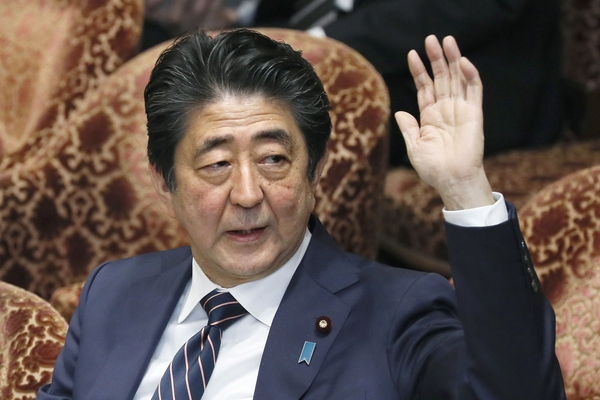 |
|
Japanese Prime Minister Shinzo Abe
|
Japanese prime minister denies connecting historical issues with trade
Japanese Prime Minister Shinzo Abe said the Japanese government’s regulations on exports of semiconductor materials to South Korea were not in violation of World Trade Organization (WTO) agreements. Speaking at a July 3 roundtable discussion by party leaders held by the Japan National Press Club a day ahead of the House of Councillors election announcement, Abe argued that the measures are “a matter of managing trade” and are “not in violation of the WTO [agreements].” Responding to a question about the Japanese government adopting “what amounts to a resistance measure” in response to the forced labor issue and noting widespread “concerns that relating matters of historical perceptions with trade policy are the same things that [US President] Donald Trump is doing and is not good for either side,” Abe bluntly replied, “I will say for certain that that perception is mistaken.” Abe went on to say, “This is not a matter of connecting historical issues to trade issues.” “The issue of conscripted workers [the term used in Japan for forced labor victims during colonial Japan’s occupation of Korea] is a question of whether promises between countries under international law are being kept,” he added. “Each side forfeited its right to claims with the Japan-Korea Claims Settlement Agreement of 1965. That was a promise between one country and another,” Abe said. “The question is what is to be done if that promise changes.” Acknowledges measures as response to S. Korean Supreme Court ruling In his remarks, Abe claimed that the measures were not a case of linking historical issues to trade, while also acknowledging that the government’s measures came in response to the South Korean Supreme Court ruling ordering compensation for forced labor conscription. Abe also made reference to a 2015 agreement between the South Korean and Japanese governments on the comfort women issue. “The comfort women agreement was an agreement between heads of state and foreign minister. It was praised by the UN and then US President Barack Obama,” he said. “That agreement has not been kept. It’s a matter of international promises not being honored,” he continued. Abe also expressed displeasure toward the questioner, stating, “Your perception is wrong.” Abe additionally noted the existence of the Wassenaar Agreement as a multilateral export control regime for strategic items. “Japan is a party [to that agreement]. There is an obligation for each party to manage trade for the sake of security,” he said. “When one of the parties under that obligation does not honor its promises, that means we cannot offer the same preferential treatment measures that we have in the past,” he added. Addressing the press, Abe said, “There is one thing that it misreported: this is not an export ban.” “It means we cannot provide the same preferential treatment as before,” he explained in an apparent nod to numerous reports even by the Japanese press criticizing the government’s measures. Abe consistently stressed that the measure was “an obvious decision” and “not at all in violation of the WTO.” By Cho Ki-weon, Tokyo correspondent Please direct comments or questions to [english@hani.co.kr]






